Biblical figures at crucial crossroads faced transformative decisions—discover how these ancient choices mirror the dilemmas of our own lives.
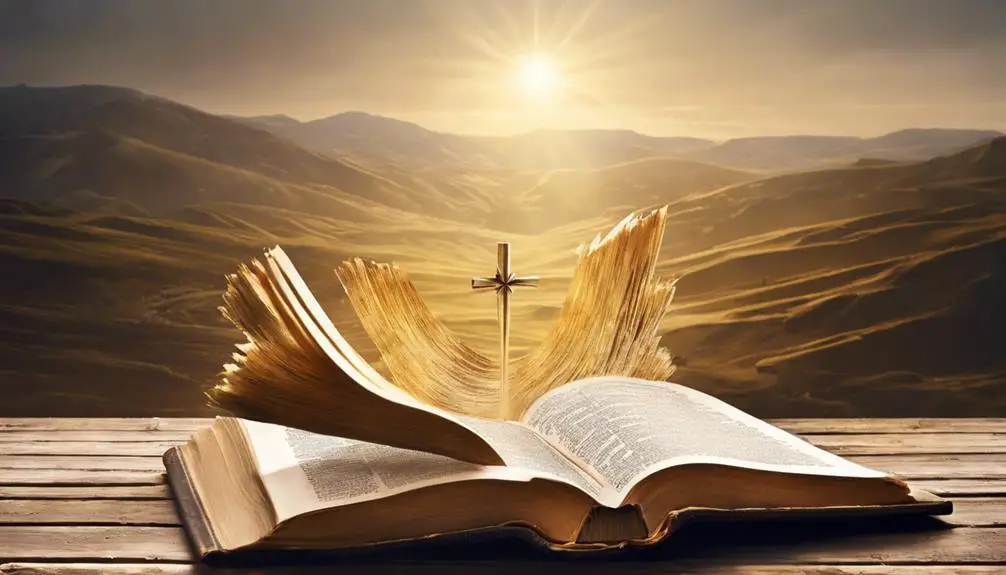
Two Choices in the Bible
Imagine standing at a crossroads where each path ahead represents a decision with monumental consequences. This metaphor aptly captures the essence of pivotal moments in the Bible, where individuals faced two distinct choices.
You'll find that from Adam and Eve's fateful decision in the Garden of Eden to Joshua's bold ultimatum to the Israelites, these narratives aren't just ancient history—they're reflections of the choices you face in your own life.
As we explore these moments, consider what lies beyond the surface, inviting you to ponder the deeper implications of these binary choices and how they resonate with your personal journey.
Key Takeaways
- Biblical narratives often emphasize the profound impact of individual choices on personal destiny and collective history.
- The stories of Adam and Eve, and Cain and Abel, illustrate how choices driven by desire or jealousy can lead to negative consequences.
- Leaders like Moses and Joshua faced choices that tested their faith and obedience, shaping the spiritual identity of the Israelites.
- Jesus's temptations in the desert highlight the importance of resilience and faithfulness in overcoming ethical and spiritual challenges.
Adam and Eve's Decision
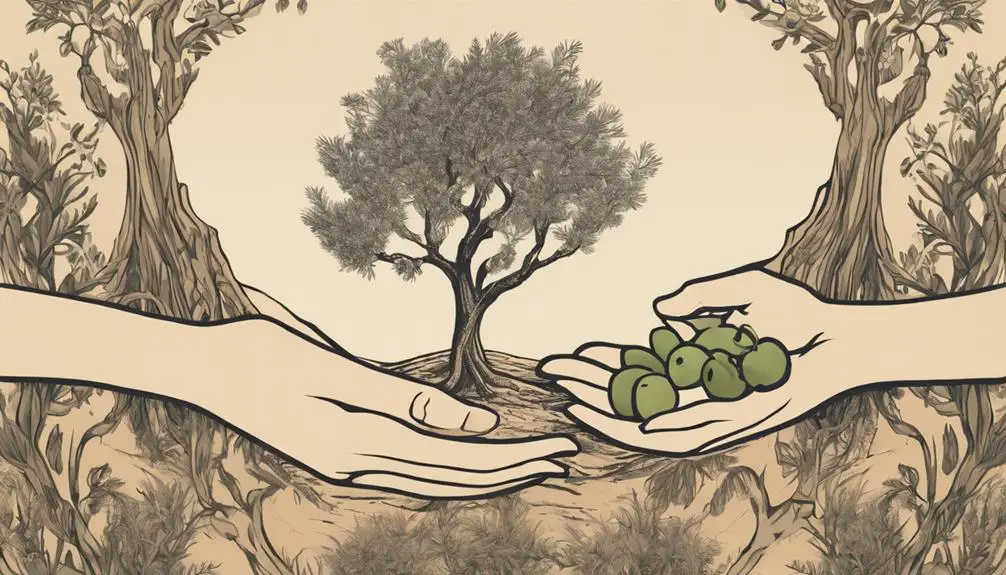
In the narrative of Genesis, Adam and Eve's decision to eat from the Tree of Knowledge fundamentally alters human destiny, showcasing the profound impact of free will in the divine-human relationship. This moment, often referred to as the original sin, marks a pivotal point in biblical history, highlighting the inherent tension between obedience to divine command and the allure of forbidden knowledge. The repercussions of their choice are immediate and severe, leading to what's poetically known as Paradise Lost.
Through this act of disobedience, you're invited to ponder the complex nature of free will and its implications for humanity. The concept of original sin isn't merely about the transgression itself but also about the cascading effects of that choice on subsequent generations. It's a reminder of the fragile balance between divine expectations and human curiosity.
Furthermore, the expulsion from Eden symbolizes the loss of innocence and the beginning of human struggle, signifying a transition from a state of blissful ignorance to one of painful awareness. This narrative sets the stage for understanding the intricate dynamics of choice, consequence, and the quest for redemption that permeates the human condition.
The Path of Cain and Abel

Following the narrative of Adam and Eve, the story of Cain and Abel further explores the nuanced dimensions of human choice, emphasizing the stark consequences that follow actions driven by jealousy and pride. At its core, this tale is a profound meditation on brotherly rivalry and sacrificial differences, offering timeless insights into the human condition.
- Brotherly Rivalry: The intense competition between Cain and Abel serves as a powerful allegory for the destructive potential of envy and competition within familial relationships.
- Sacrificial Differences: Their divergent approaches to sacrifice highlight the importance of intention and authenticity in one's offerings, suggesting that the value of a gift lies not in its material worth, but in the heart of the giver.
- Consequences of Choices: The tragic outcome of Cain's actions underscores the irreversible impact of our choices, reminding you that decisions driven by negative emotions can lead to devastating consequences.
Moses: Obedience Vs. Rebellion
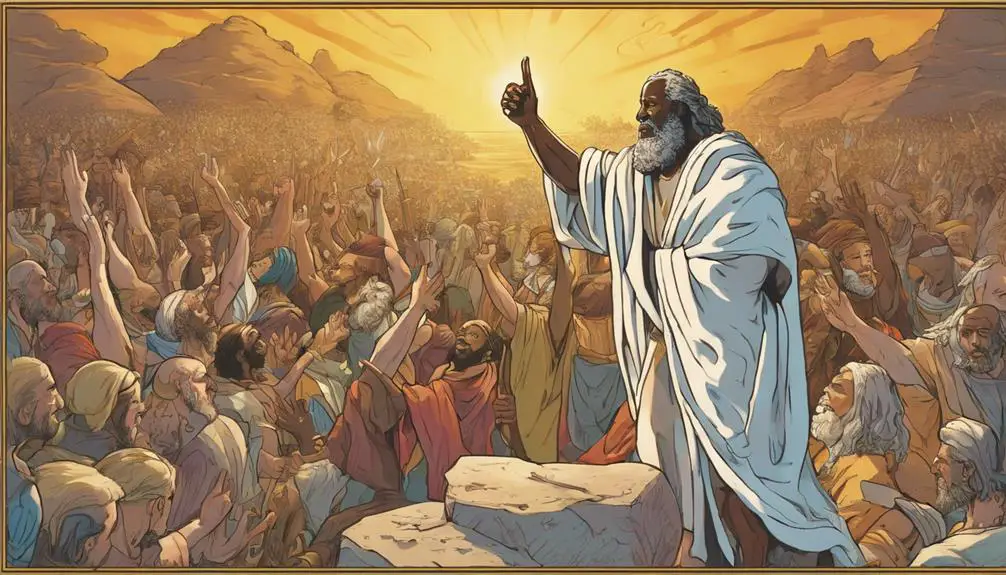
Moses's journey exemplifies the profound tension between obedience to divine command and the human inclination toward rebellion, revealing pivotal moments that define the trajectory of Israelite history. You'll see, through Moses's life, a constant battle between submitting to God's will and the natural desire to take matters into one's own hands. This struggle isn't unique to him; it mirrors our daily battles between obedience and rebellion.
Obedience |
Rebellion |
|---|---|
Moses heeding God's call at the burning bush |
Questioning God's plan before Pharaoh |
Leading the Israelites across the Red Sea |
Hesitation at the edge of the Red Sea, fearing Pharaoh's heart and army |
Faithfully conveying God's laws to the people |
Striking the rock in frustration instead of speaking to it |
Moses's actions had profound implications. His obedience led to the liberation of the Israelites from Egypt, a pivotal moment in their journey to the Promised Land. Yet, his moments of rebellion, especially his disobedience at Meribah, resulted in personal consequences, preventing him from entering the Promised Land. This duality in Moses's life serves as a powerful reminder of the consequences of our choices between obedience and rebellion, guided by faith or fear.
Joshua's Ultimatum to Israel
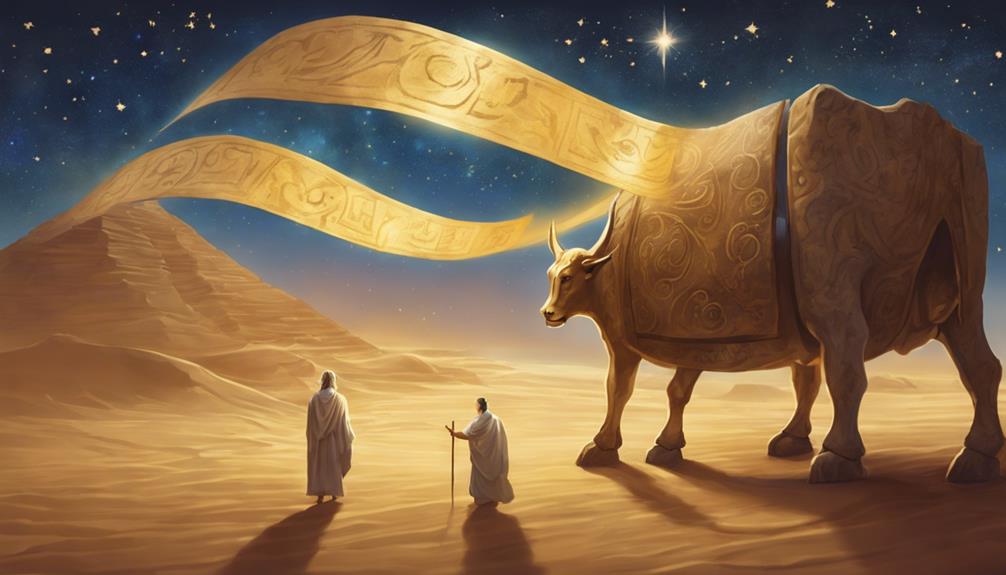
Joshua consistently challenged the Israelites, presenting a stark choice between serving the God who liberated them or the gods of their ancestors and surrounding nations. This moment wasn't just about religious devotion; it was a critical juncture for their national identity and religious fidelity. Joshua's ultimatum wasn't merely about choosing gods; it was about defining who they were as a people and what they stood for.
- Covenant Renewal: Joshua's call was a plea for covenant renewal, urging the Israelites to reaffirm their commitment to God, thereby securing their identity as His chosen people.
- Exclusive Worship: By demanding a choice, Joshua emphasized the exclusivity of worship that their faith required, challenging them to reject the polytheistic practices surrounding them.
- Legacy and Future: The decision would set a precedent for future generations, influencing the religious fidelity and national identity of Israel for centuries to come.
Joshua's challenge underscores the profound connection between faith and identity. His ultimatum wasn't just about the immediate choice before them; it was about laying a foundation for their descendants, ensuring that their national identity and religious fidelity would be intertwined for generations.
Jesus's Temptations
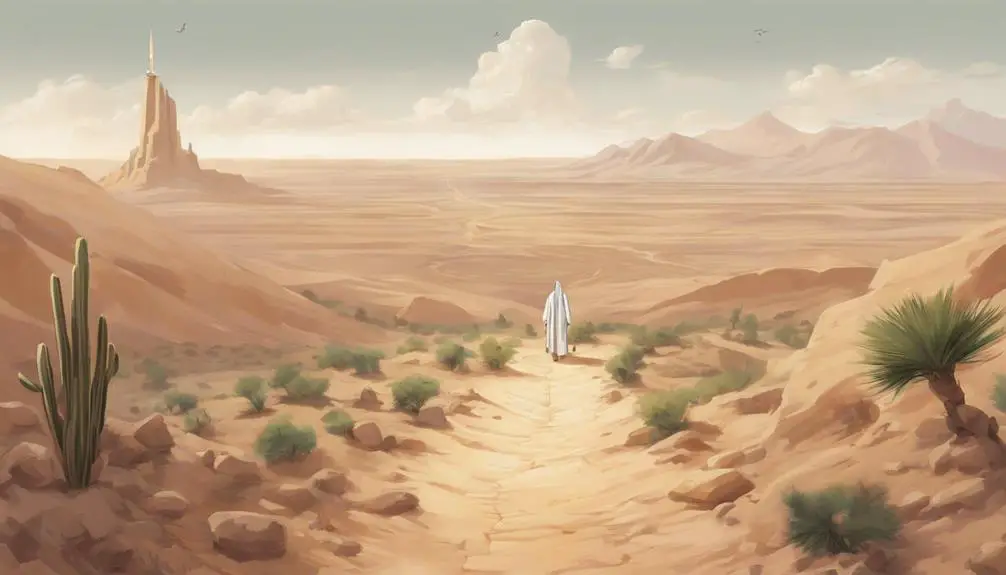
In the wilderness, Jesus faced a series of temptations that not only tested his resolve but also offered profound insights into the nature of faith and human vulnerability. This pivotal episode, occurring during his desert fasting, illuminates the stark choices between worldly allure and spiritual fidelity. You'll find that Jesus's experience is emblematic of the broader human condition, wherein temptation often emerges in moments of isolation and physical need.
Desert fasting, a period marked by 40 days and nights of abstention from food, underscored Jesus's human limitations. Yet, it's within this vulnerability that his spiritual fortitude shines brightest. The temptations—turning stones to bread, seizing political power, and testing God's protection—aren't merely about physical hunger or ambition but symbolize deeper ethical and spiritual dilemmas about trust, obedience, and the misuse of divine gifts.
Crucially, angelic assistance highlights a pivotal aspect of this narrative. After resisting temptation, angels minister to Jesus, suggesting that divine support and guidance are ever-present, even in our lowest moments. This angelic intervention serves as a reminder that, amidst life's trials and temptations, one isn't left to fend alone but is supported by a higher power, reinforcing the connection between human vulnerability and divine assistance.
Frequently Asked Questions
How Do Modern Interpretations of These Biblical Choices Differ Across Various Denominations and Cultures?
You'll find that cultural interpretations and denominational differences significantly shape how modern readings of biblical choices vary.
Each culture and denomination brings its unique lens, influencing the understanding and application of these choices in contemporary contexts.
This diversity reflects deep, scholarly insights into the texts, offering a rich tapestry of perspectives that highlight the dynamic and evolving nature of religious interpretation across various communities and traditions.
Are There Psychological Theories That Can Explain the Decision-Making Processes of These Biblical Figures?
Yes, there are psychological theories that might explain the decision-making processes observed. Cognitive dissonance, for instance, occurs when you're faced with conflicting beliefs or choices, leading to discomfort and eventually a decision that reduces the dissonance.
Decision fatigue refers to the deteriorating quality of decisions made after a long session of decision-making. Both theories offer insight into why you might lean towards certain decisions after wrestling with conflicting choices or after making numerous decisions.
How Have These Stories of Choices Been Depicted in Art, Literature, and Film Throughout History?
Throughout history, you've seen stories of choices vividly brought to life in art, literature, and film. Artists and writers often use artistic symbolism to explore these narratives, embedding deep meanings within their works.
Cultural adaptations further enrich this tapestry, showcasing how different societies interpret and value these tales. Each depiction, from Renaissance paintings to modern cinema, offers a unique lens through which to understand the complexities of human decision-making.
What Role Do These Choices Play in Contemporary Ethical and Moral Debates?
In contemporary ethical and moral debates, choices often reflect and challenge societal norms and political implications. They serve as a mirror, revealing how current values align or conflict with traditional beliefs.
These debates aren't just theoretical; they influence legislation, impact social attitudes, and shape the collective conscience. Analyzing them offers insightful perspectives on the dynamics of change and resistance within society, underscoring the evolving nature of morality and ethics.
Can Parallels Be Drawn Between the Choices Faced by These Biblical Characters and Those Encountered in Other Religious Texts or Mythologies?
Absolutely, you can draw parallels between the biblical choices and those in other religious texts or mythologies. This comparative mythology approach enriches interfaith dialogue, revealing shared ethical dilemmas and moral values.
Conclusion
Throughout biblical narratives, the motif of choice underscores humanity's inherent freedom and its profound implications. Adam and Eve's disobedience, Cain's envy, Moses' leadership dilemmas, Joshua's call for commitment, and Jesus's resistance to temptation collectively highlight a fundamental truth: choices define us. Analyzing these decisions reveals a divine intention for human agency within a moral framework.
Consequently, these stories aren't mere historical recounts but are instructive, illustrating the perpetual battle between virtue and vice that defines the human condition.

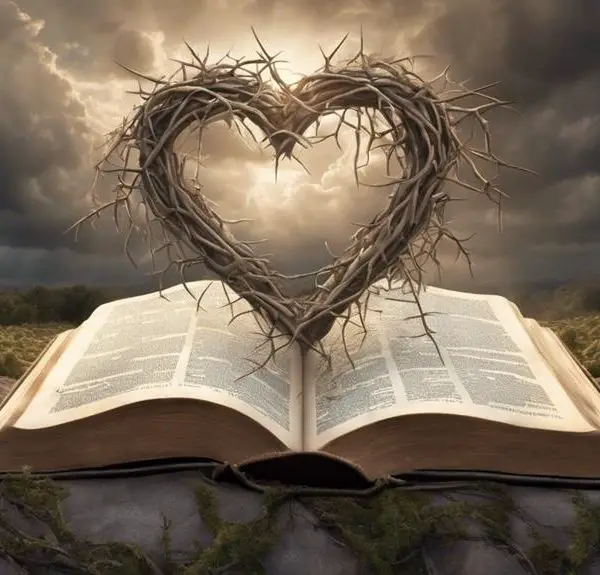

Sign up